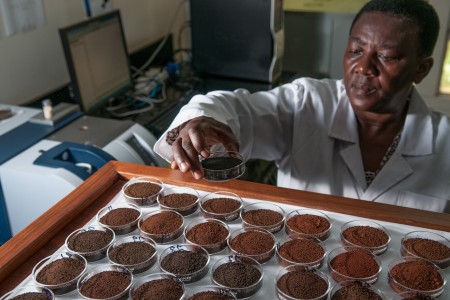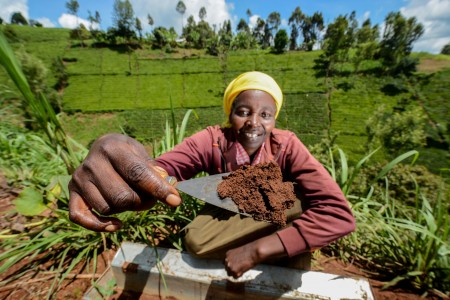This is an excerpt from a piece that was originally posted on the CIAT Blog.
New studies released by CIAT and partners show that, given the vast amount of carbon stored our soils, small management changes could have tremendous impacts, offsetting greenhouse gas emissions.
“We’re at the forefront of understanding how we can make the most of soils to remove carbon dioxide from the atmosphere,” said Rolf Sommer, principal soil scientist at CIAT Africa.
“But at the same time, we do need to be realistic about how much carbon our soils actually can store, and how much this would contribute to climate change mitigation.”
The five rapid assessments tested “climate-smart” soil protection and restoration practices across different farm types in Kenya, Ethiopia, Burkina Faso, India and Benin. They studied five different kinds of households, from poor female-headed households to large commercial ones.
The researchers added up the amount of calories of food produced on each farm, and GHGs emitted, comparing current with best-bet soil management techniques advocated by GIZ and development partners to sustain soil health, boost production, and improve farm resilience.
They found that, while farmers in these countries already contribute very few emissions to start with, in general, small farms emit higher quantities of GHGs per calorie of food produced compared with larger ones. They also found that livestock contribute more greenhouse gas emissions in these farming systems, especially when raised on low quality feed – the case in most smallholder systems in Africa.
While total quantities of emissions from smallholder systems pale in comparison with large commercial farms, small farms are also less efficient. At the same time, tilling the soil on a more regular basis, especially on smaller plots of land, accelerates the process of decomposing organic matter – required to move from net loss to net sinking carbon.






